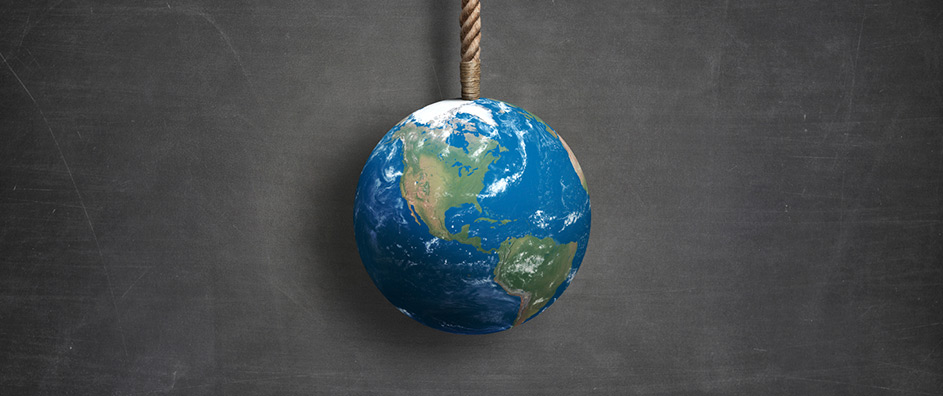In the vast tapestry of human experience, the quest for spiritual enlightenment stands as a profound journey undertaken by innumerable souls. One of the most striking assertions within the Bahá’í teachings is that “to progress spiritually, humanity needs a divine educator.” This concept shrouds itself in both historical and metaphorical significance, underscoring the importance of divine guidance in the evolutionary trajectory of human consciousness. Understanding the nature of this divine educator illuminates the pathways through which mankind can attain higher states of awareness.
The metaphor of a lighthouse can serve as a powerful illustration in this regard. Just as a lighthouse guides mariners through treacherous waters and illuminates the path to safe harbor, a divine educator provides moral and spiritual guidance to humanity navigating the turbulent seas of existence. In an age marked by confusion, fragmentation, and ethical dilemmas, the need for such guidance becomes not only pertinent but essential.
The concept of a divine educator is intrinsically linked to the Bahá’í belief in the Manifestations of God. These figures—founders of the world’s major religions—act as bridges between the divine and humanity, embodying spiritual wisdom that transcends temporal contexts. For instance, figures like Moses, Jesus, Muhammad, and Bahá’u’lláh serve as critical touchpoints in this narrative, each bringing forth teachings tailored to the needs of their respective eras while invariably contributing to a cohesive continuum of divine instruction.
One cannot overstate the transformative potential inherent in this divine guidance. With each new revelation, there emerges an opportunity to ascend from the murky depths of ignorance to the exhilarating heights of understanding. This progression is not merely a personal endeavor; it is a collective journey towards unity and interconnectedness. The divine educator’s influence fosters a broader awareness that transcends individualistic concerns, spotlighting the importance of service to others and the nurturing of community bonds.
Consider the profound implications of the divine educator’s role in moral education. The teachings conveyed by such a figure offer not just abstract concepts, but rather practical frameworks for ethical living. Through the lens of Bahá’í philosophy, virtues such as justice, compassion, and humility are not merely aspirational ideals but actionable directives for individuals seeking spiritual maturity. This stands in stark contrast to a prevailing secular narrative that often prioritizes individual gain over collective welfare.
Moreover, the divine educator presents humanity with a clarion call to embrace diversity and coexistence. The Bahá’í teachings articulate the notion that every individual, regardless of their background, possesses an intrinsic worth. The metaphor of a garden, wherein various flowers bloom side by side, beautifully encapsulates this. Just as a garden thrives on diversity, humanity too flourishes when it recognizes and celebrates its plurality in thought, culture, and expression. This rich tapestry of diversity is not a threat; rather, it is an essential component of a spiritually evolving society.
A divine educator also excels in the art of fostering critical consciousness. In a world rife with misinformation and divisive rhetoric, the ability to discern truth is paramount. The teachings provided pave the way for intellectual rigor, urging individuals to engage with their surroundings thoughtfully. Such engagement, when informed by divine wisdom, leads to the dismantling of ignorance and the cultivation of wisdom. Within this framework, the pursuit of knowledge is viewed not as an end in itself but as a means to effect positive change in the world.
Furthermore, the connection with a divine educator instills a profound sense of purpose within the believer. It transforms the mundane into the extraordinary and prompts a re-evaluation of life’s objectives. When one recognizes that they are part of a larger, divine narrative, it can incite a transformative enthusiasm for life. Every act of kindness, every moment of service, and every quest for understanding is recontextualized as a contribution to the unfolding story of humanity’s spiritual evolution.
This transformative journey, however, is not devoid of challenges. The process of spiritual growth often necessitates the dismantling of deeply ingrained paradigms and entrenched behaviors. Individuals may encounter resistance from within themselves or from societal structures that favor the status quo. Thus, the guidance of a divine educator becomes pivotal during such tumultuous periods, providing solace, perspective, and direction. The educator embodies patience and resilience, offering humanity not just teachings but also the blueprint for navigating personal and collective trials.
Additionally, the divine educator addresses the necessity of education as a means to advance both spiritual and material civilization. The teachings advocate for a system of education that is holistic—encompassing intellectual, moral, and spiritual dimensions. This comprehensive approach to education lays the groundwork for individuals to emerge as informed and compassionate leaders capable of driving social progress. The Bahá’í commitment to education reflects a realization that the advancements of the spiritual realm cannot be divorced from material realities.
In conclusion, the assertion that humanity needs a divine educator encapsulates the essence of Bahá’í belief and practice. It is a steadfast reminder that spiritual progress necessitates guidance, wisdom, and collective responsibility. Just as a maestro conducts a symphony, harmonizing diverse instruments into a singular melodic experience, the divine educator orchestrates the spiritual development of humanity, ensuring that each soul contributes to the collective symphony of existence. As individuals embrace this call and strive to embody the virtues instilled by the educator, a future brimming with unity, purpose, and enlightenment becomes not just a possibility but an inevitable reality.
